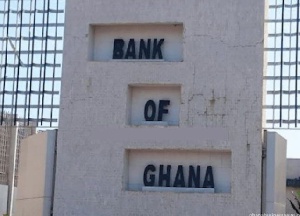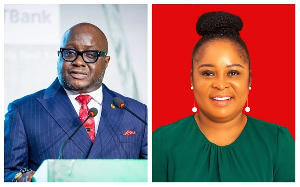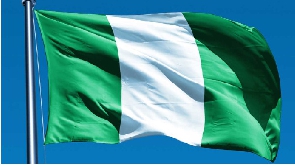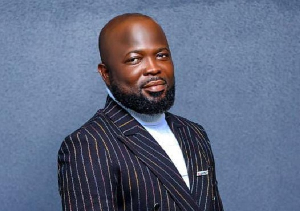The Bank of Ghana is aiming to increase Ghana’s gross international reserves by a further US$1 billion before the end of this year in its bid to forestall the customary significant depreciation of the cedi during the end of year festivities, and, even more importantly, to enter 2020 with an economy strong enough to withstand the usual fiscal performance induced problems that occur in an election year.
To this end, the central bank can look towards receipt of the second tranche of this year’s US$1.3 billion COCOBOD receivables-backed syndicated loan from a consortium of international banks. It also expects Ghana’s merchandise trade surplus to continue through the last quarter of this year, providing further net foreign exchange inflows. Ghana has recorded trade surpluses of over US$300 million in each of the first two quarters of this year and expects to repeat this during the last quarter as well.
Dr Ernest Addison, Governor of the BoG, revealed the target yesterday during the first plenary session at the 2019 Ghana Economic Forum organized annually by Business and Financial Times newspaper.
Currently, Ghana has gross international reserves of about US$ 8 billion, enough to cover about four and a half months of imports. This is part of a deliberate policy of the BoG to build reserves as a buffer against external shocks. If the central bank can meet its target reserves would stand at about US$9 billion by year-end, very close to the all-time high level of US$9.96 billion reached by the end of March this year following receipt of proceeds of the US$3 billion Eurobond issuance done in that month, the largest to date done by Ghana.
Instructively, that issuance ended the sharp depreciation of the cedi during the first quarter of the year, during which time the currency lost eight percent of its value against the US dollar. However, since then cedi depreciation has been minimal, amounting to barely 10 percent year to date.
The sheer announcement by the BoG Governor yesterday of the intention to increase Ghana’s foreign reserves during the last two months of this year, rather than draw them down to meet a spike in forex demand to finance the traditional increase in imported consumer goods during the year-end festivities, has spurred higher confidence in the cedi on local forex markets. This did not prevent a marginal fall in the cedi yesterday, to GH¢5.45 to a dollar, but forex traders say a couple of days are needed for the market to fully assimilate and actually act on the information.
Importantly, the announcement came just two days after the latest forward forex sale by the BoG – the third since it began forward forex sales on October 1, to allow businesses immediately lock into their forex needs and exchange rates until the end of the year, with a view to eliminating uncertainty about forex availability and cost during the customary end of year spike in demand. The latest forward forex auction saw bids of US$61 million, against US$25 million being offered, this reflecting the huge demand pressure on the exchange rate.
The 2019 Ghana Economic Forum was held yesterday at the Tang Palace Hotel in Accra under the theme “Sustaining macroeconomic stability through the election cycle: the 2020 test case.
President Nana Akuffo Addo himself delivered the keynote address at the forum which included three plenary sessions and some breakaway sessions. Participants included Finance Minister Ken Ofori Atta and BoG Governor Dr Addison as well as other key ministers and private sector chieftains.
Click to view details



Business News of Saturday, 2 November 2019
Source: goldstreetbusiness.com
Bank of Ghana targets US$1 billion increase in foreign reserves
Entertainment
















